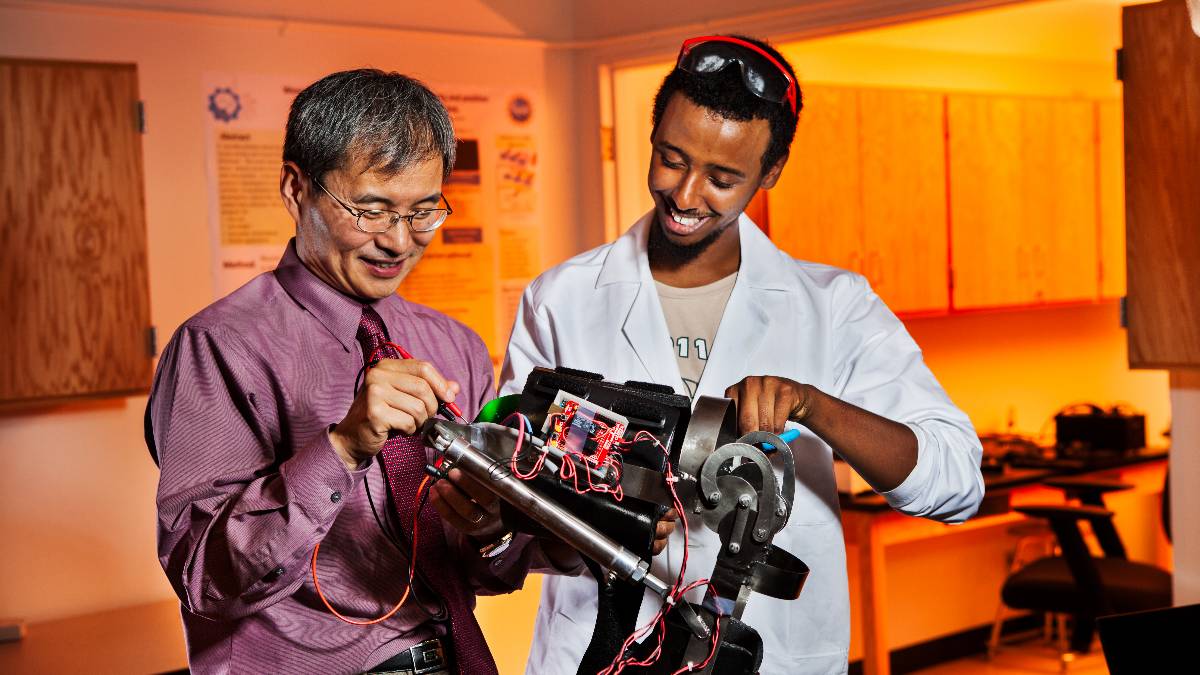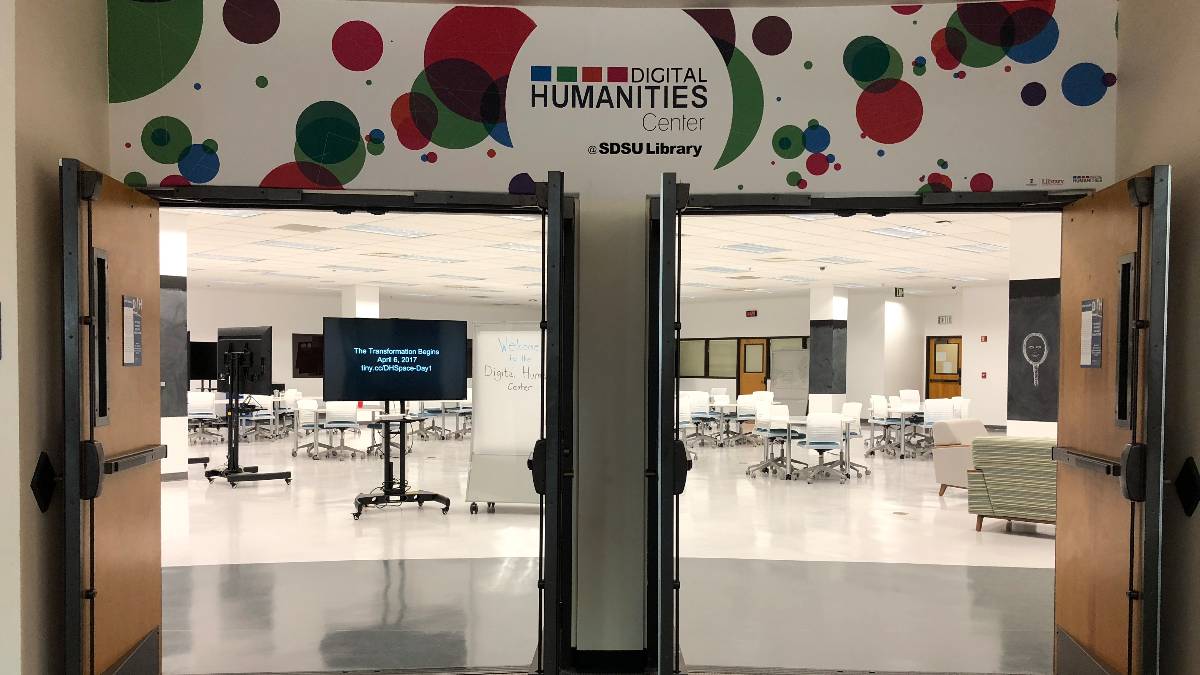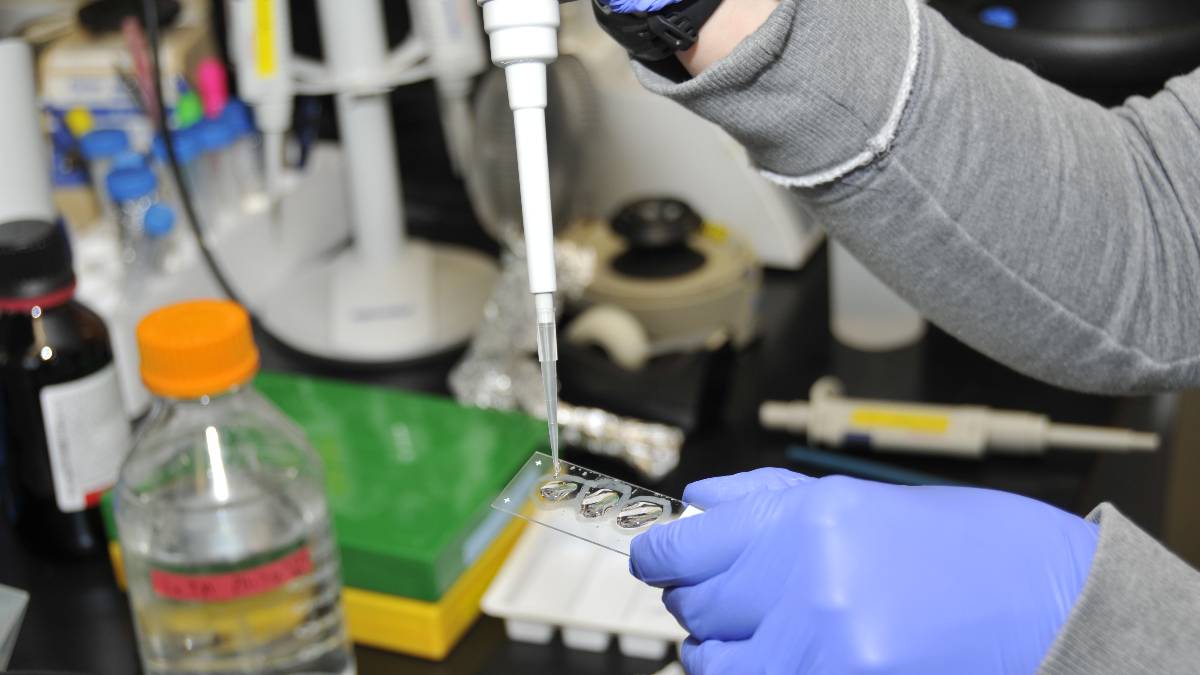Clusters of collaborative, creative, and vital research
San Diego State University is investing strategically in seven targeted Areas of Excellence. These investments build on the strengths of our brilliant faculty and campus partners in new and exciting ways that catalyze innovation and discovery. They encourage collaborations, and foster the development and growth of scholarship by creating common themes that are explored from a multi-disciplinary perspective.
HDMA addresses the opportunities that spring from the convergence of new developments in spatial science, mobile technology, big data, and social behavior research. There is the growing recognition of the importance of spatial and temporal dynamic relationships in explaining processes relevant to human behaviors, public health, and social activities, which has become known as the "spatial turn."
A maturing of mobile technology and smart phone devices enables social scientists to collect data on human activities and behavior digitally and to transform their research from qualitative analysis to computational modeling, simulation, and predictions with the focus on dynamic spatial and temporal relationships.
The availability and quality of fresh water are critical for a sustainable society. The current water-based challenges facing the global community, including our region of San Diego County, Northern Baja California, and the Imperial Valley, are projected to intensify and also arguably represent near-future scenarios for many other domestic and international regions.
Future water security in many areas of the world, including southern California, will require both increased supply through wastewater reuse and desalination, and demand management through integrated resource management strategies. Nonpoint-source pollution will continue to harm downstream ecosystems and shallow subsurface aquifers. Alternative water supply strategies, including wastewater reuse, can also have ecological benefits by reducing discharges into the environment. Thus, Blue Gold – the availability of fresh water and the health of watersheds are inextricably linked and increasingly tied to issues of energy and technology as human population, societal demand, and climate change intensify.
Our vision is that SDSU will become a global leader in developing advanced understanding of and solutions for water resources issues in water-scarce areas, using the San Diego-Border region as a model that can be applied in other regions experiencing similar water scarcity, including areas of active research by the 5 core faculty (India, Brazil, Mexico, southern Africa). Learn more about Blue Gold.
C2NS is aligned with the National Institutes of Health BRAIN initiative and advances SDSU’s contributions to the understanding and treatment of brain-based disorders such as autism, aphasia, fetal alcohol spectrum disorders and Alzheimer’s disease.
With research strengths in human behavioral neuroscience and clinical neuropsychology, plus expertise in neuroimaging, SDSU is well-placed to contribute to this national priority. Faculty specializing in clinical and cognitive neuroscience will collaborate to increase understanding of brain-based disorders. Working with a range of ages and afflictions, they will also look for genetic factors that may influence an individual’s susceptibility to injury or damage and response to treatment.
C2S2 is on course to become a global resource for climate change information as well as a regional hub for education and policy development. Members of SDSU’s new Center for Climate and Sustainability Studies were among the first to detect global warming, associate it with human activity and determine the effects of climate change on Earth’s ecosystems.
Now researchers want to expand this cross-disciplinary work to include solutions to address sustainability. They will investigate how global climate change can affect ecosystems to feedback and amplify global warming, and how temperature variations—even as slight as 1 degree—can accelerate the spread of infectious diseases. They will bring the impacts of climate change close to home by studying its effects on San Diego’s ecosystems, agriculture, water availability and general economic health.
The Smart Health Institute develops research programs with potential applications to a wide range of fields including health, medical innovation and devices, disease diagnostics, and wireless communication. To accomplish this goal, we will build a multi-college and trans-disciplinary team of researchers. This diverse group of trans-disciplinary researchers focuses on developing next generation health sensor technologies ranging from portable, wearable and minimally intrusive sensors that can provide real-time health monitoring and integration into rehabilitation assessment, intervention and long-term follow-up of patients to compact, label-free biomedical sensors with sensitivities down to single molecules, or even nanoparticles that have been a dream of scientists for years. The Smart Health Institute addresses the core technology for smart health care that is one of the key challenges in the medical community.
The Viral Information Institute integrates researchers from biology, mathematics, computer science, engineering and public health to study viruses and manipulate their interaction with Earth’s ecosystems for the benefit of human and environmental health. Viruses are the most abundant biological entities on Earth, outnumbering bacteria more than tenfold. Although viruses infect all known cells and profoundly influence their evolution, the precise function of viruses is largely unknown.
Combining strengths in genomics, genetics and biochemistry, mathematical modeling, and computational analysis, members of this area of excellence will continue to probe biological “space” to find and explore unparalleled interactions between viruses and other organisms present in various environments. Their research may develop new ways to detect, manipulate and control viruses that infect bacteria in natural systems, from the human digestive tract to ocean waters and coral reefs.







